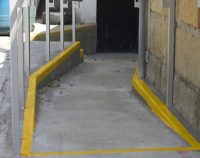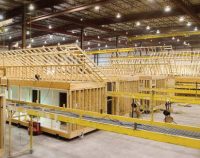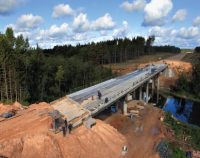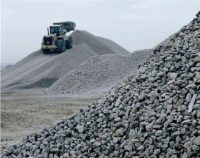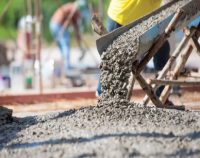Showing 1–20 of 85 results
Bridge Steels and their Mechanical Properties: 4 PDH
$24.00 Add to cartIn this course the student will gain a comprehensive understanding of the types, properties, manufacturing processes, and performance characteristics of structural steels used in bridge construction. They will understand how various steel grades are selected based on mechanical properties, environmental conditions, and fabrication needs.Instructor: Raymond Bosek, PESPECIFIC KNOWLEDGE OR SKILL OBTAINED
This course teaches the following specific knowledge and skills:
- Identify and differentiate various grades of bridge steel, especially those covered under the ASTM A709 specification.
- Explain the mechanical behaviors of bridge steels, including stress-strain response, ductility, hardness, and fracture toughness.
- Describe steel manufacturing processes and their influence on the final mechanical properties and uniformity of bridge steels.
- Evaluate the corrosion resistance and service conditions that influence the choice of weathering versus non-weathering steels.
- Assess the weldability and fabrication techniques applicable to different grades of bridge steel, including cutting, bending, and machining.
- Interpret applicable AASHTO and ASTM standards to ensure compliance and best practices in bridge design and steel selection.
CERTIFICATE OF COMPLETION
You will be able to immediately print a certificate of completion after passing a 20 question multiple-choice quiz. The quiz can be retaken unlimited times until a passing grade of 70% or better is earned. This course satisfies four (4) hours of professional development (PDH).
Preview CourseClick “Preview Course” to view prior to purchaseClick “Add to Cart” to purchaseConstruction Site – Erosion and Sediment Control: 5 PDH
$30.00 Add to cartIn this course the student will gain a comprehensive understanding of how urbanization alters natural hydrologic processes and contributes to environmental degradation through increased stormwater runoff, erosion, and pollutant transport. They will also understand the interrelationship between land development practices, vegetation, soil integrity, and water quality.Instructor: Raymond Bosek, PESPECIFIC KNOWLEDGE OR SKILL OBTAINED
This course teaches the following specific knowledge and skills:
- Explain the hydrologic cycle and describe how urbanization alters natural stormwater flow patterns.
- Identify key pollutants associated with various land uses and construction activities, and their impacts on water quality.
- Evaluate the physical, chemical, and biological effects of increased impervious surfaces on watershed ecosystems.
- Conduct site assessments to collect critical environmental data including topography, soil characteristics, hydrologic features, and vegetation.
- Design erosion and sediment control plans incorporating both structural and non-structural stormwater quality measures.
- Develop comprehensive stormwater pollution prevention plans (SWPPPs) that address both active construction and post-construction phases.
CERTIFICATE OF COMPLETION
You will be able to immediately print a certificate of completion after passing a 20 question multiple-choice quiz. The quiz can be retaken unlimited times until a passing grade of 70% or better is earned. This course satisfies five (5) hours of professional development (PDH).
Preview CourseClick “Preview Course” to view prior to purchaseClick “Add to Cart” to purchaseCorrosion Protection of Steel Bridges: 5 PDH
$30.00 Add to cartIn this course the student will understand the principles, materials, environmental factors, and design strategies necessary to mitigate corrosion in steel bridge structures. They will develop a comprehensive knowledge of corrosion mechanisms, protection systems, and performance evaluation.Instructor: Raymond Bosek, PESPECIFIC KNOWLEDGE OR SKILL OBTAINED
This course teaches the following specific knowledge and skills:
- Identify environmental factors affecting steel bridge corrosion.
- Evaluate materials used for corrosion protection in bridges.
- Compare coating systems for their durability and cost.
- Analyze historical performance of various corrosion mitigation strategies.
- Apply design considerations for corrosion-prone structural components.
- Select corrosion protection systems based on site-specific exposure.
CERTIFICATE OF COMPLETION
You will be able to immediately print a certificate of completion after passing a 20 question multiple-choice quiz. The quiz can be retaken unlimited times until a passing grade of 70% or better is earned. This course satisfies five (5) hours of professional development (PDH).
Preview CourseClick “Preview Course” to view prior to purchaseClick “Add to Cart” to purchaseLightning Protection Design and Standards: 5 PDH
$30.00 Add to cartIn this course the student will understand the principles, standards, risks, and design methods of lightning protection systems, including external and internal protection strategies, materials selection, and risk assessment based on IEC 62305 standards.Instructor: Juan Pesante, PESPECIFIC KNOWLEDGE OR SKILL OBTAINED
This course teaches the following specific knowledge and skills:
- Explain lightning physics and flash mechanics.
- Apply IEC 62305 lightning protection standards.
- Design air-termination and grounding systems.
- Evaluate lightning risks using risk management frameworks.
- Select appropriate materials for lightning protection systems.
- Integrate surge protection devices into power systems.
CERTIFICATE OF COMPLETION
You will be able to immediately print a certificate of completion after passing a 20 question multiple-choice quiz. The quiz can be retaken unlimited times until a passing grade of 70% or better is earned. This course satisfies five (5) hours of professional development (PDH).
Preview CourseClick “Preview Course” to view prior to purchaseClick “Add to Cart” to purchaseContinuously Reinforced Concrete Pavement: 5 PDH
$30.00 Add to cartIn this course the student will understand the design, construction, maintenance, and rehabilitation of Continuously Reinforced Concrete Pavement (CRCP). They will grasp the critical principles governing CRCP performance, including crack control, reinforcement detailing, and the role of materials and environmental conditions in long-term pavement behavior.Instructor: Raymond Bosek, PESPECIFIC KNOWLEDGE OR SKILL OBTAINED
This course teaches the following specific knowledge and skills:
- Describe the fundamental principles and behaviors of CRCP, including its cracking mechanisms and performance indicators
- Apply mechanistic-empirical pavement design methods for determining optimal slab thickness and reinforcement layout
- Select and justify appropriate materials, reinforcement types, and base layers to enhance pavement durability and minimize distress
- Implement best practices in the construction of CRCP, including reinforcement placement, paving, and curing techniques
- Evaluate pavement condition using performance metrics such as crack width, spacing, punchouts, and roughness
- Develop maintenance, repair, and rehabilitation strategies for aging CRCP structures to extend their service life
CERTIFICATE OF COMPLETION
You will be able to immediately print a certificate of completion after passing a 20 question multiple-choice quiz. The quiz can be retaken unlimited times until a passing grade of 70% or better is earned. This course satisfies five (5) hours of professional development (PDH).
Preview CourseClick “Preview Course” to view prior to purchaseClick “Add to Cart” to purchaseCuring of Portland Cement Concrete Pavements: 4 PDH
$24.00 Add to cartIn this course the student will gain detailed, research-based guidance on the curing process for concrete pavements, including pre-construction planning, methods of curing (initial and final), material selection, environmental considerations, and techniques to verify curing effectiveness. It emphasizes best practices to ensure long-term pavement performance and reduce early-life concrete distress.Instructor: Raymond Bosek, PESPECIFIC KNOWLEDGE OR SKILL OBTAINED
This course teaches the following specific knowledge and skills:
- Explain the role of curing in achieving durable and strong concrete pavement, and identify consequences of inadequate curing.
- Distinguish between the initial and final curing periods and describe their specific requirements and timing.
- Evaluate environmental and material conditions that influence curing needs, including bleeding rates, evaporation rates, and concrete temperature.
- Apply appropriate curing techniques—such as curing compounds, water-based methods, and sheet materials—based on project-specific conditions.
- Identify factors contributing to plastic shrinkage and thermal cracking, and implement corrective actions to mitigate these issues during paving.
- Verify curing effectiveness through practical methods, including visual inspection, reflectometry, and temperature/moisture measurement tools.
CERTIFICATE OF COMPLETION
You will be able to immediately print a certificate of completion after passing a 20 question multiple-choice quiz. The quiz can be retaken unlimited times until a passing grade of 70% or better is earned. This course satisfies four (4) hours of professional development (PDH).
Preview CourseClick “Preview Course” to view prior to purchaseClick “Add to Cart” to purchaseEngineering Green Streets: 3 PDH
$18.00 Add to cartIn this course the student will understand how to integrate green infrastructure practices into public rights‑of‑way—roads, alleys, sidewalks and parking areas—to better manage stormwater and too acquire the practical tools to design, implement and maintain effective, context‑sensitive stormwater solutions in transportation corridors.Instructor: Raymond Bosek, PESPECIFIC KNOWLEDGE OR SKILL OBTAINED
This course teaches the following specific knowledge and skills:
- Explain the fundamentals of stormwater runoff and green infrastructure processes
- Describe the environmental, social and economic benefits of green streets
- Match green infrastructure practices to transportation typologies
- Develop a green streets program
- Apply detailed design considerations
- Select, size and design pretreatment and core stormwater management practices
CERTIFICATE OF COMPLETION
You will be able to immediately print a certificate of completion after passing a 20 question multiple-choice quiz. The quiz can be retaken unlimited times until a passing grade of 70% or better is earned. This course satisfies three (3) hours of professional development (PDH).
Roller-Compacted Concrete : 5 PDH
$30.00 Add to cartIn this course the student will understand the principles, methods, and considerations involved in the use of roller-compacted concrete (RCC) for civil works structures, particularly dams. They will gain foundational knowledge of material properties, mix design, construction techniques, and quality assurance protocols essential to RCC implementation.Instructor: Raymond Bosek, PESPECIFIC KNOWLEDGE OR SKILL OBTAINED
This course teaches the following specific knowledge and skills:
- Define roller-compacted concrete and distinguish it from conventional concrete and embankment materials in terms of composition and application
- Evaluate the suitability of materials, including aggregates, cementitious substances, and admixtures, for RCC construction
- Design RCC mixture proportions to meet structural and performance criteria based on strength, durability, and workability requirements
- Apply best practices for RCC placement, compaction, and construction using specialized equipment and techniques
- Implement quality assurance and quality control procedures throughout the RCC construction process
- Analyze the performance of RCC structures post-construction with respect to watertightness, durability, and structural integrity
CERTIFICATE OF COMPLETION
You will be able to immediately print a certificate of completion after passing a 20 question multiple-choice quiz. The quiz can be retaken unlimited times until a passing grade of 70% or better is earned. This course satisfies five (5) hours of professional development (PDH).
Preview CourseClick “Preview Course” to view prior to purchaseClick “Add to Cart” to purchaseUltra-High Performance Concrete (UHPC): 4 PDH
$24.00 Add to cartIn this course the student will understand the unique properties, design implications, and practical applications of Ultra-High Performance Concrete (UHPC), particularly in bridge infrastructure. They will grasp how UHPC differs from conventional concrete, including its superior strength, durability, and performance in extreme conditions.Instructor: Raymond Bosek, PESPECIFIC KNOWLEDGE OR SKILL OBTAINED
This course teaches the following specific knowledge and skills:
- Differentiate UHPC from conventional and high-performance concretes in terms of material composition, mechanical strength, and durability.
- Analyze the mechanical properties of UHPC, including compressive and tensile strengths, modulus of elasticity, and fatigue behavior.
- Design structural elements using UHPC by applying appropriate load resistance principles and reinforcement strategies.
- Evaluate the curing, mixing, and placement methods critical to achieving UHPC’s optimal performance in the field.
- Assess the long-term durability of UHPC in various environmental conditions including freeze-thaw cycles, marine exposure, and fire resistance.
- Identify current and potential applications of UHPC in infrastructure projects worldwide, with an emphasis on bridge engineering.
CERTIFICATE OF COMPLETION
You will be able to immediately print a certificate of completion after passing a 20 question multiple-choice quiz. The quiz can be retaken unlimited times until a passing grade of 70% or better is earned. This course satisfies four (4) hours of professional development (PDH).
Preview CourseClick “Preview Course” to view prior to purchaseClick “Add to Cart” to purchaseAccident and Operational Safety Analysis: 4 PDH
$24.00 Add to cartIn this course the student will understand the fundamental concepts of accident dynamics, accident prevention, and accident analysis. The student will learn the theoretical bases of safety management and accident analysis, and the practical application of a Safety Management framework for an organization.Instructor: Raymond Bosek, PESPECIFIC KNOWLEDGE OR SKILL OBTAINED
This course teaches the following specific knowledge and skills:
- Explain accidents and accident models
- Discuss cause and effect relationships
- Understand human performance considerations
- Describe safety management systems
- Recognize accident types/ individual and systems
- Explain the design of accident investigations
CERTIFICATE OF COMPLETION
You will be able to immediately print a certificate of completion after passing a twenty (20) question multiple-choice quiz. The quiz can be retaken unlimited times until a passing grade of 70% or better is earned. This course satisfies four (4) professional development hours (PDH) of continuing education.
Preview CourseClick “Preview Course” to View Prior to PurchaseClick “Add to Cart” to Purchase and Access QuizADA Standards for Accessible Designs: 6 PDH
$36.00 Add to cartThe Americans with Disabilities Act (ADA) is a federal civil rights law intended to protect qualified persons with disabilities from discrimination in employment, government services and programs, transportation, public accommodations, and telecommunications. The ADA covers a wide range of legal and regulatory issues with regard to Americans with disabilities. This course will focus on the Americans with Disabilities Act Accessibility Guidelines for Buildings and Facilities (the ADA Accessibility Design Guidelines), with which engineers and architects need to comply when working on new constructions or alterations of existing structures.Instructor: Raymond Bosek, PEThe Americans with Disabilities Act (ADA) is a federal civil rights law intended to protect qualified persons with disabilities from discrimination in employment, government services and programs, transportation, public accommodations, and telecommunications. The ADA covers a wide range of legal and regulatory issues with regard to Americans with disabilities. This course will focus on the Americans with Disabilities Act Accessibility Guidelines for Buildings and Facilities (the ADA Accessibility Design Guidelines), with which engineers and architects need to comply when working on new constructions or alterations of existing structures.
SPECIFIC KNOWLEDGE OR SKILL OBTAINED
This course teaches the following specific knowledge and skills:
- ADA Accessibility Design Guidelines
- General instructions and definitions
- Technical specifications and requirements on elements and spaces
- Specific requirements for restaurants
- Specific requirements for cafeterias
- Specific requirements for medical facilities
- Specific requirements for business facilities
- Specific requirements for lodging facilities
- Specific requirements for libraries
- Specific requirements for transportation facilities
CERTIFICATE OF COMPLETION
You will be able to immediately print a certificate of completion after passing a 30 question multiple-choice quiz. The quiz can be retaken unlimited times until a passing grade of 70% or better is earned. This course satisfies 6 professional development hours (PDH) of continuing education.
Preview CourseClick “Preview Course” to View Prior to PurchaseClick “Add to Cart” to Purchase and Access QuizAdvanced Fabricated Building: 6 PDH
$36.00 Add to cartIn this course the student will understand the building requirements of manufactured structures, particularly residential homes in Florida, as well as understand the various fabrication materials used for other advanced building projects. Instructor: Raymond Bosek, PESPECIFIC KNOWLEDGE OR SKILL OBTAINED
This course teaches the following specific knowledge and skills:
- Discuss building codes & HUD codes for fabricated structures
- Understand the materials & products of manufactured buildings
- Discuss systems & systems testing of manufactured buildings
- Explain the various fabrication products for advanced construction
- Discuss the benefits and drawbacks of each of these fabrication products
CERTIFICATE OF COMPLETION
You will be able to immediately print a certificate of completion after passing a 20 question multiple-choice quiz. The quiz can be retaken unlimited times until a passing grade of 70% or better is earned. This course satisfies six professional development hours (PDH) of continuing education.
Preview CourseClick “Preview Course” to View Prior to PurchaseClick “Add to Cart” to Purchase and Access QuizAerial Photogrammetry: 5 PDH
$30.00 Add to cartIn this course the student will understand procedural guidance, technical specifications, and quality control (QC) criteria for performing aerial photogrammetric mapping activities.Instructor: Raymond Bosek, PESPECIFIC KNOWLEDGE OR SKILL OBTAINED
This course teaches the following specific knowledge and skills:
- Discuss the fundamentals & principles of aerial photogrammetry
- Explain photographic scale, geometry and coordinate system equations
- Discuss operational procedures and standards
- Discuss all aspects of planning
- Explain aerial image acquisition & aerial triangulation
- Understand digital photogrammetric mapping workflow
CERTIFICATE OF COMPLETION
You will be able to immediately print a certificate of completion after passing a 20 question multiple-choice quiz. The quiz can be retaken unlimited times until a passing grade of 70% or better is earned. This course satisfies five professional development hours (PDH) of continuing education.
Preview CourseClick “Preview Course” to View Prior to PurchaseClick “Add to Cart” to Purchase and Access QuizAirborne Topographic LiDAR: 3 PDH
$18.00 Add to cartIn this course the student will review the principles of Airborne Topographic LiDAR and learn how to utilize methods to employ this technology in the field.Instructor: Raymond Bosek, PESPECIFIC KNOWLEDGE OR SKILL OBTAINED
This course teaches the following specific knowledge and skills:
- Explain what Airborne Topographic LiDAR is
- Understand the principles and methods of operation
- Discuss overall planning concepts
- Discuss LiDAR data processing and report generation
CERTIFICATE OF COMPLETION
You will be able to immediately print a certificate of completion after passing a 10 question multiple-choice quiz. The quiz can be retaken unlimited times until a passing grade of 70% or better is earned. This course satisfies three professional development hours (PDH) of continuing education.
Preview CourseClick “Preview Course” to View Prior to PurchaseClick “Add to Cart” to Purchase and Access QuizApproach Roadway Deformations: 4 PDH
$24.00 Add to cartIn this course the student will understand roadway approach embankment design and construction and methods to mitigate deformations typically seen in these structure, including the infamous “bump” encountered at the approach to structure interface.Instructor: Raymond Bosek, PESPECIFIC KNOWLEDGE OR SKILL OBTAINED
This course teaches the following specific knowledge and skills:
- Explain typical approach roadway deformation problems
- Discuss internal and external deformation
- Understand computation of immediate and consolidation settlements
- Explain deformation design solutions
- Understand construction monitoring and quality assurance
CERTIFICATE OF COMPLETION
You will be able to immediately print a certificate of completion after passing a 20 question multiple-choice quiz. The quiz can be retaken unlimited times until a passing grade of 70% or better is earned. This course satisfies four (4) hours of professional development (PDH).
Preview CourseClick “Preview Course” to view prior to purchaseClick “Add to Cart” to purchaseBases and Subbases for Concrete Pavements: 1 PDH
$6.00 Add to cartIn this course the student will understand the best practices for the design and construction of bases and subbases for concrete pavements as well as the effects on performance.Instructor: Raymond Bosek, PEIn this course the student will understand the concepts and benefits of internal curing for concrete pavements including mixture design, quality control, and studies of practical applications over the past two decades.SPECIFIC KNOWLEDGE OR SKILL OBTAINED
This course teaches the following specific knowledge and skills:
- Rigid Pavement Layer Configuration
- Design of Base/Subbase For Rigid Pavements
- Materials For Base and Subbase
- Construction and Subbase
- Cost Considerations
CERTIFICATE OF COMPLETION
You will be able to immediately print a certificate of completion after passing a 10 question multiple-choice quiz. The quiz can be retaken unlimited times until a passing grade of 70% or better is earned. This course satisfies one (1) professional development hour (PDH) of continuing education.
Preview CourseClick “Preview Course” to View Prior to PurchaseClick “Add to Cart” to Purchase and Access QuizChemical Deicers & Concrete Pavement: Impacts & Mitigation: 1 PDH
$6.00 Add to cartIn this course the student will understand the distresses caused to concrete by chemical deicers and methods used to minimize this distress.Instructor: Raymond Bosek, PEIn this course the student will understand the distresses caused to concrete by chemical deicers and methods used to minimize this distress.
SPECIFIC KNOWLEDGE OR SKILL OBTAINED
This course teaches the following specific knowledge and skills:
- Understanding of the use of chemical anti-icers and deicers
- Discuss how hydraulic cement paste (HCP) is traditionally protected from freeze-thaw damage
- Describe physical and chemical distress mechanisms
- Discuss strategies that can be employed to mitigate this distress
CERTIFICATE OF COMPLETION
You will be able to immediately print a certificate of completion after passing a 10 question multiple-choice quiz. The quiz can be retaken unlimited times until a passing grade of 70% or better is earned. This course satisfies one professional development hour (PDH) of continuing education.
Preview CourseClick “Preview Course” to View Prior to PurchaseClick “Add to Cart” to Purchase and Access QuizChillers, Refrigerant Compressors, and Heating Systems: 5 PDH
$30.00 Add to cartThis course focuses on the equipment and equipment components used to generate heating and cooling. It does not include fans and pumps. This distinction is clear for most equipment types, such as unit heaters, boilers, and chillers. However, for packaged air-conditioning (AC) equipment the distinction can be subtle. Most packaged AC equipment is treated as a unit by performance rating procedures. Hence, separation of the fans is difficult. For this study, only the refrigerant compressors of packaged equipment are considered. Instructor: Seth Grablow, PEThis course focuses on the equipment and equipment components used to generate heating and cooling. It does not include fans and pumps. This distinction is clear for most equipment types, such as unit heaters, boilers, and chillers. However, for packaged air-conditioning (AC) equipment the distinction can be subtle. Most packaged AC equipment is treated as a unit by performance rating procedures. Hence, separation of the fans is difficult. For this study, only the refrigerant compressors of packaged equipment are considered.
SPECIFIC KNOWLEDGE OR SKILL OBTAINED
This course teaches the following specific knowledge and skills:
- To provide an accurate estimate of the energy used by primary cooling and heating equipment in the US commercial building sector
- To provide a physical understanding of the factors, which contribute to energy use by the equipment
- To provide a baseline estimate of current national energy use, which can be used for calculation of the national energy savings impact of various options for reducing energy usage
CERTIFICATE OF COMPLETION
You will be able to immediately print a certificate of completion after passing a 20 question multiple-choice quiz. The quiz can be retaken unlimited times until a passing grade of 70% or better is earned. This course satisfies 5 professional development hours (PDH) of continuing education.
Preview CourseClick “Preview Course” to View Prior to PurchaseClick “Add to Cart” to Purchase and Access QuizConcepts for Advanced Electrical Knowledge & Practical Troubleshooting: 8 PDH
$40.00 Add to cartIn this course, applicable to all professional engineering backgrounds, the student will understand the concepts of electricity and mechanism and design of electronics. They will understand how electrical components work from theory to design to the operation of common industrial circuits with tips for practical troubleshooting.Instructor: Juan Pesante, PESPECIFIC KNOWLEDGE OR SKILL OBTAINED
This course teaches the following specific knowledge and skills:
- Discuss the concepts of electricity & electronic theory
- Understand electromagnetism and electromotive force
- Understand current, voltage, and resistance in circuits
- Explain DC & AC circuit analysis
- Discuss capacitance and inductance
- Understand DC & AC measuring instruments and concepts
- Explain circuit analysis and troubleshooting circuits
CERTIFICATE OF COMPLETION
You will be able to immediately print a certificate of completion after passing a 30 question multiple-choice quiz. The quiz can be retaken unlimited times until a passing grade of 70% or better is earned. This course satisfies eight professional development hours (PDH) of continuing education.
Preview CourseClick “Preview Course” to View Prior to PurchaseClick “Add to Cart” to Purchase and Access QuizConcrete Construction: 6 PDH
$36.00 Add to cartMore concrete is used than any other man-made material in the world, about seven billion cubic meters of concrete – more than one cubic meter for every person on Earth.
Concrete is one of the most important construction materials. It is comparatively economical, easy to make, offers continuity and solidity, and will bond with other materials.
In this course the student will understand essentially all aspects of concrete construction including characteristics, mix design, formwork, joints, placement, finishing, and pre-cast. Instructor: Raymond Bosek, PESPECIFIC KNOWLEDGE OR SKILL OBTAINED
This course teaches the following specific knowledge and skills:
- Define characteristics of concrete
- Identify ingredients essential for good concrete
- Calculate concrete mix designs
- Determine methods and mixing times of concrete
- Describe the types of concrete forms and their construction
- Determine the types of ties for and placement of reinforcing steel
- Determine the location of construction joints
- Determine proper occasions for using the concrete saw
- Describe the proper procedures for placing concrete
- Describe the methods available for consolidating concrete
- Describe the finishing process for the final concrete surface
- Determine projects suitable for and lifting methods necessary for precast and tilt-up construction
CERTIFICATE OF COMPLETION
You will be able to immediately print a certificate of completion after passing a 21 question multiple-choice quiz. The quiz can be retaken unlimited times until a passing grade of 70% or better is earned. This course satisfies six professional development hours (PDH) of continuing education.
Preview CourseClick “Preview Course” to View Prior to PurchaseClick “Add to Cart” to Purchase and Access Quiz










